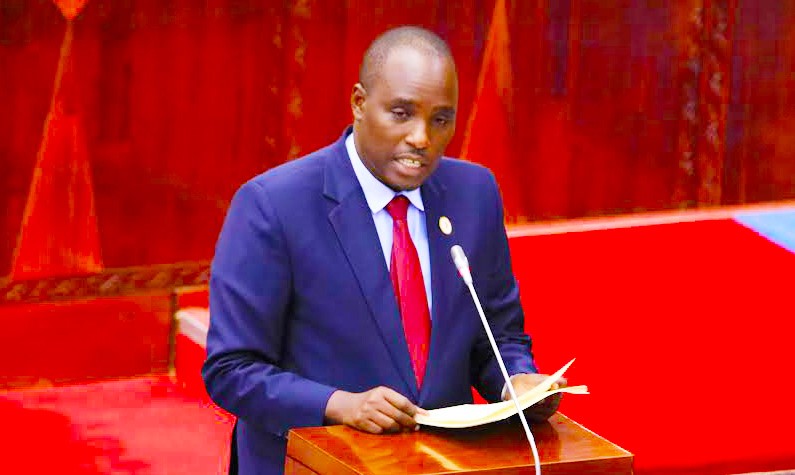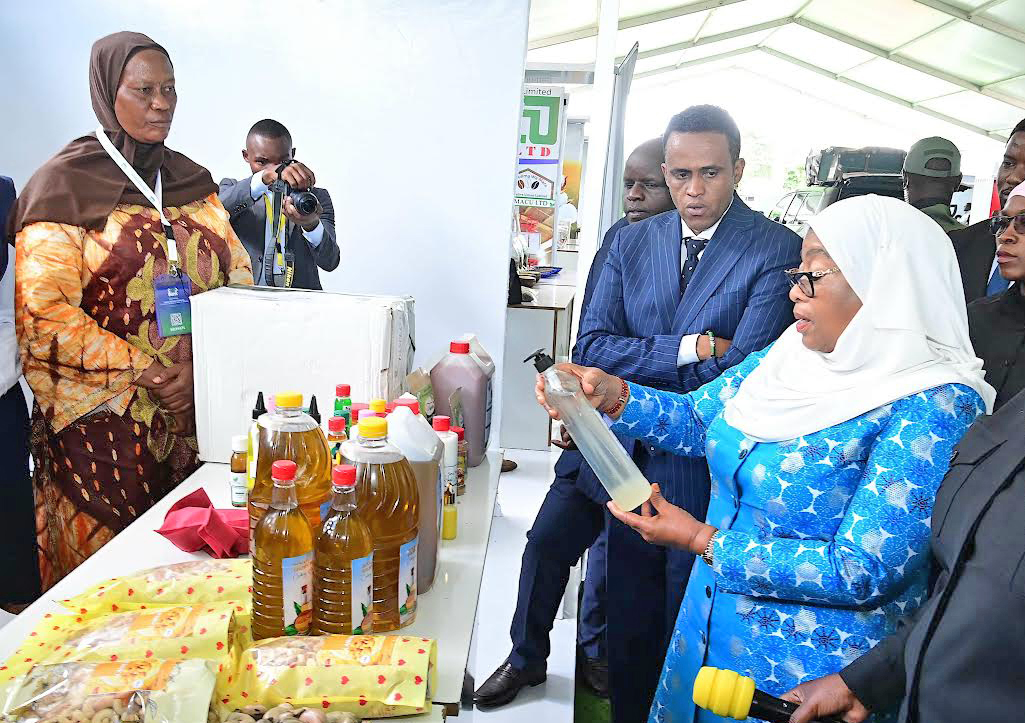Tanzania’s grand plan to boost electricity access, clean cooking energy

Deputy Prime Minister and Energy minister Doto Biteko presents the Energy ministry’s 2025/26 budget estimates in Parliament in Dodoma on April 28, 2025. PHOTO | HAMIS MNIHA
What you need to know:
- Governmemt outlines plans to expand electricity access, improve clean cooking energy solutions and enhance electricity and natural gas transmission
Dodoma. The Tanzanian government has announced a substantial budget increase for the Energy ministry in 2025/26, with plans to expand electricity access, improve clean cooking energy solutions and enhance electricity and natural gas transmission.
The budget has been raised by 19 percent to Sh2.25 trillion, up from Sh1.88 trillion in the current fiscal year.
The increase, presented by Energy minister Doto Biteko in Parliament on Monday, aims to address the growing demand for electricity, reduce reliance on traditional cooking fuels and integrate Tanzania more fully into regional energy networks.
He revealed that Sh2.17 trillion (96.5 percent) of the budget would go towards development projects, including major electricity transmission and electrification initiatives.
One of the most significant projects funded in the 2025/26 fiscal year is the Hamlet Electrification Project (HEP IIB), which will connect 9,009 hamlets by constructing 13,180.56 kilometres of medium-voltage and 14,016.50 kilometres of low-voltage distribution lines. The project, which will cost approximately Sh1.39 trillion, will also install 8,003 100kVA transformers and 1,006 200kVA transformers, benefiting 290,300 customers. Dr Biteko confirmed that the project will be financed with Sh350 billion from domestic sources and Sh2.26 billion from Norway.
The budget increase also reflects Tanzania’s growing electricity generation capacity.
“As of April 2025, Tanzania’s national grid has expanded by 86.6 percent, increasing from 2,138 MW in March 2024 to 4,031.71 MW, mainly due to the completion of the 2,115MW Julius Nyerere Hydropower Dam,” Dr Biteko, who is also the Deputy Prime Minister, said.
Tanzania’s membership in regional power pools such as the Eastern African Power Pool (EAPP) and the Southern African Power Pool (SAPP) is becoming increasingly important. Dr Biteko emphasized that Tanzania’s growing electricity surplus puts the country in a strong position to engage in regional power trading. Tanzania has completed the 400kV Singida–Arusha–Namanga transmission line, linking it to Kenya and the EAPP. Additionally, the 400kV Iringa–Mbeya–Tunduma–Sumbawanga transmission line, which spans 620 km, will connect Tanzania to the SAPP via Zambia by 2026.
Tanzania is also in negotiations to purchase 100 MW of electricity from Ethiopia via Kenya and is exploring the potential to export electricity to Zambia.
In addition to expanding electricity access, the government is focusing on promoting clean cooking energy. Dr Biteko outlined plans to distribute 370,000 improved cooking stoves in rural and peri-urban areas, along with 40,000 electric stoves. The government will also continue its Liquefied Petroleum Gas (LPG) cylinder distribution project, which offers subsidised LPG cylinders to citizens.
Furthermore, Sh4.7 billion from the World Bank will support the distribution of clean cooking technologies and the installation of clean cooking systems in 400 public institutions such as schools, vocational colleges and prisons. A total of Sh20 billion has been allocated for these efforts.
The government’s clean cooking initiatives align with the National Strategy for Clean Cooking Energy (2024–2034), which aims to ensure 80 percent of Tanzanians use clean cooking energy by 2034. In partnership with the United Nations Capital Development Fund (UNCDF) and the European Union (EU), the government has already begun installing clean cooking systems in schools across Mwanza, Dodoma and Morogoro, with further plans to expand into Dar es Salaam, Pwani and Mwanza.
Private sector partnerships are also being leveraged, with 452,445 LPG cylinders set to be distributed nationwide. By April 2025, 154,224 cylinders had been distributed and the project is expected to be completed by September 2025.
In its observations, the Parliamentary Committee on Energy and Minerals recommended that the government revise its electricity connection fee policy to enable rural citizens to pay in instalments rather than upfront, which would make electricity access more affordable.
“This Committee urges the government to accelerate rural electrification projects, as only 927 hamlets were electrified in the one-year period from February 2024 to February 2025, representing just 2.89 percent of unconnected hamlets,” said the Committee Chairman, Dr David Mathayo David.
He said that despite a Sh350 billion allocation for rural electrification in the 2024/25 fiscal year, disbursement of the funds had been slow, hampering progress.
The Committee called for the timely release of funds to ensure that more rural areas can be connected to the national grid.





